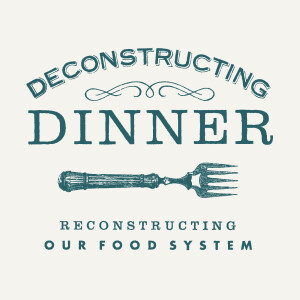
The Solidarity of Others is Our Own Defense - Defining Food Security and Food Sovereignty
 2006-08-10
2006-08-10
What is Food Security and how is it defined globally? Food Security is often perceived as the ability of a community to respond to poverty by feeding the hungry. But Food Security is far more than just the number of food banks operating within a community. This perception has additionally fostered the belief that the remainder of the population is "food-secure".
This broadcast will look to define Food Security and Food Sovereignty. To do so, the causes of hunger will be discussed and how nations and communities respond; we will look at examples of citizen movements taking action to defend their right to food; and ultimately, we will attempt to connect the struggles and efforts of others to our North American relationship to food. Are those of us who readily have access to food really food-secure? Are the food struggles and solidarity of others a glimpse into where our own food system has gone wrong? Can we look to these struggles as an illustration of how we as North Americans have lost our connection to food?
Voices
Anuradha Mittal - Executive Director, The Oakland Institute. A native of India, Anuradha is an internationally renowned expert on trade, development, human rights and agriculture issues. She worked for ten years as the policy director and then the co-director at the Institute for Food and Development Policy (Food First). In 2004, she established The Oakland Institute - a policy think tank located in Oakland, California. This footage is courtesy of RadioActive at WERU Community Radio in Blue Hill/Bangor, Maine.
Refugio Gregorio - Mixteca Elder, Representative of the Indigenous Women's Cooperative - Margarita Magón (Oaxaca, Mexico). In 2002 protests succeeded in keeping a McDonald's out of the central square of Oaxaca. McDonald's was seen as a threat to the cultural heritage of the indigenous people in and around Oaxaca. Refugio participated in this protest and continues to found her resistance in the celebration of food and tradition.
Antonio Villanueva Feliciano - Zapotec Migrant Indigenous Leader, Youth Representative, Popular Indigenous Council of Oaxaca (CIPO-RFM) - CIPO-RFM is an organization representing 24 indigenous communities. They use non-violent resistance to exercise autonomy and direct action, and defend their human, territorial, economic, social, political and cultural rights, as communities and as individuals.
Emilie Smith - The Ecumenical Task Force for Justice in the Americas (Vancouver) - Emilie worked for 22 years in Mexico and Guatemala helping to improve conditions of indigenous people. She represents the Popular Indigenous Council of Oaxaca (CIPO-RFM), and is currently supporting CIPO-RFM leader, Raul Gatica Bautista, who is now a refugee in exile in Vancouver. Emilie acted as the translator in the studio for Antonio Feliciano and Refugio Gregorio.
Charles Levkoe - SunRoot Farm (Nova Scotia). Charles was most recently the Urban Agriculture Coordinator at The Stop Community Food Centre in Toronto. Charles received a Masters degree in Food Security and Popular Education from the Faculty of Environmental Studies at York University. He sits on the board of the American Community Gardening Association. As of July 2006, Charles is now part of SunRoot Farm - a community-supported agriculture co-operative in Kennetcook, Nova Scotia.
South Central Farmers (Los Angeles) - Since 1992, 14 acres of property located in the middle of Los Angeles has been used as a community garden or farm. The land has been divided into 360 plots and is believed to be one of the largest urban gardens in the country. On June 14, 2006, an eviction notice was carried out by hundreds of LA riot police.
More Episodes
 2010-05-06
2010-05-06
 2010-03-09
2010-03-09
 2010-02-06
2010-02-06
 2010-01-26
2010-01-26
Create your
podcast in
minutes
- Full-featured podcast site
- Unlimited storage and bandwidth
- Comprehensive podcast stats
- Distribute to Apple Podcasts, Spotify, and more
- Make money with your podcast
It is Free
- Privacy Policy
- Cookie Policy
- Terms of Use
- Consent Preferences
- Copyright © 2015-2024 Podbean.com




